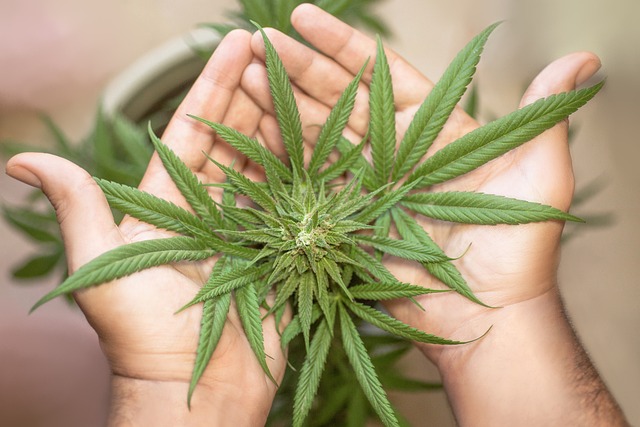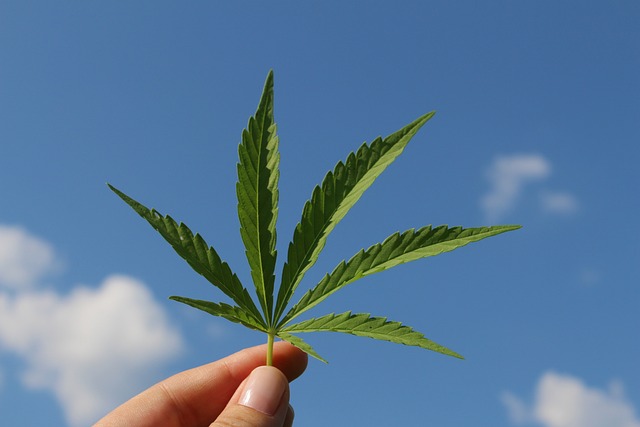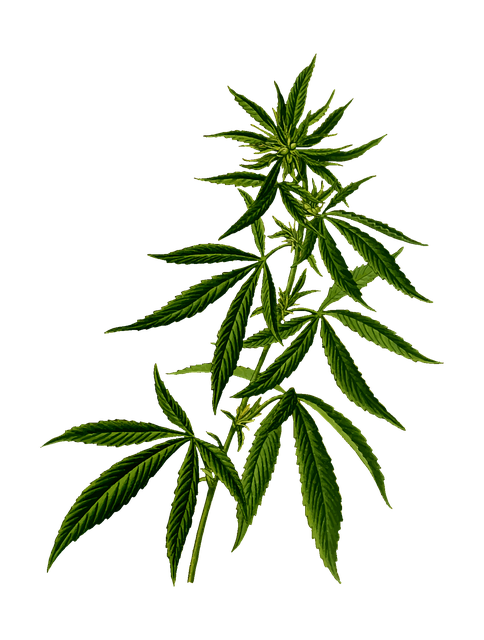THCA buds, derived from cannabis plants and rich in the non-psychoactive compound THCA, are being explored as a natural alternative for managing stress without the mind-altering effects of THC. These buds are believed to interact with the endocannabinoid system, potentially offering anxiety relief and anti-inflammatory benefits, which are particularly relevant given the link between chronic stress and inflammation in the body. Preliminary research suggests that THCA buds may contribute to stress relief by influencing mood and pain response signal receptors without causing psychoactive effects. Anecdotal evidence supports their effectiveness for stress management, but it's important to use them responsibly, within legal frameworks, and in consultation with healthcare providers due to potential health interactions. As research continues, the therapeutic potential of THCA buds for stress relief is becoming more recognized, making them a prominent topic of interest in holistic health practices.
Exploring the nuanced effects of THCA buds, this comprehensive article delves into the multifaceted impact of these cannabinoid-rich flowers on wellness, particularly for stress relief. From their chemical makeup and potential benefits to a detailed examination of side effects, we uncover the science behind THCA’s therapeutic properties. Readers will gain insights into dosage and safety considerations, understand the role of terpenes in influencing effects, and learn how to mitigate adverse reactions for a safe and effective wellness experience. Join us as we navigate through the legalities surrounding THCA flowers, compare their efficacy with other cannabinoids, and integrate them into holistic health practices, all while emphasizing the importance of professional guidance in incorporating THCA buds into one’s routine.
- Unraveling THCA Buds: An Overview
- The Chemical Composition of THCA and Its Potential Benefits
- THCA Flower Side Effects: A Closer Look
- Stress Relief Properties of THCA Flowers
Unraveling THCA Buds: An Overview

THCA, or tetrahydrocannabinolic acid, is a naturally occurring compound found in cannabis plants that has garnered attention for its potential therapeutic properties. As researchers continue to explore its effects, THCA buds have emerged as a subject of interest, particularly for those seeking stress relief. Unlike its more famous counterpart, THC (tetrahydrocannabinol), THCA is non-psychoactive, making it an appealing option for individuals who wish to experience the plant’s benefits without the associated high. The buds are rich in this cannabinoid precursor and have been observed to exert a calming influence on the mind and body. This calming effect may be attributed to THCA’s interaction with the endocannabinoid system, which plays a crucial role in regulating mood, pain sensation, and immune response.
Incorporating THCA buds into stress relief practices can be a natural approach to managing stress-related symptoms. Preliminary studies suggest that these buds may help alleviate anxiety, reduce inflammation, and promote a sense of wellbeing. The anti-inflammatory properties are particularly noteworthy, as chronic stress is often linked with increased inflammation in the body. Furthermore, anecdotal evidence and user experiences support the claim that THCA buds can help in managing stress effectively. It’s important to approach their use responsibly and within legal boundaries, considering individual sensitivities and consulting with healthcare professionals when integrating them into one’s wellness routine. As the understanding of THCA and its effects expands, it may become a staple in holistic health regimens designed to combat stress and promote a balanced state of mind.
The Chemical Composition of THCA and Its Potential Benefits

Cannabidiol acid A (THCA) is a non-psychoactive cannabinoid found abundantly in raw cannabis plants and THCA buds, which are often hailed for their potential stress-relief properties. The chemical composition of THCA includes a hydroxyl group (-OH) at the R position on the cyclohexene ring and an acidic carboxylic acid (-COOH) at the C1 position, distinguishing it from its decarboxylated form, THC. This unique structure contributes to THCA’s diverse pharmacological effects, which include a notable lack of intoxicating effects typically associated with THC. Research suggests that THCA interacts with the body’s endocannabinoid system through two primary receptors: CB1 and CB2. Engaging these receptors may facilitate a state of balance or homeostasis within the body, potentially offering stress-relief benefits without the psychoactive influence of its derivative. Preclinical studies have indicated that THCA may possess anxiolytic (anti-anxiety) and anti-inflammatory properties, making it a subject of interest for those seeking natural ways to alleviate stress and maintain overall wellness. As such, the potential therapeutic applications of THCA are being explored in various scientific domains, with ongoing research aiming to elucidate its full spectrum of effects on human health.
THCA Flower Side Effects: A Closer Look

THCA, or Tetrahydrocannabinolic Acid, is a non-psychoactive cannabinoid found in raw cannabis plants and is often converted to THC through heat. THCA buds are increasingly recognized for their potential therapeutic properties, particularly for stress relief. While research on THCA’s effects is ongoing, anecdotal evidence and initial studies suggest that these buds may help alleviate symptoms of stress without the psychoactive ‘high’ associated with its degraded form, THC. Users report a sense of calm and relaxation without cognitive impairment, making it a preferred option for those sensitive to or wishing to avoid psychoactive effects.
However, like all cannabinoids, THCA flower can have side effects. It’s important to approach its consumption with caution, as individual responses may vary. Common side effects include dry mouth and dry eyes, which are typically mild and temporary. Users should also be aware of potential psychoactive effects if the THCA is improperly decarboxylated or heated, leading to the conversion of THCA into THC. Additionally, while generally well-tolerated, THCA may interact with certain medications or exacerbate specific conditions, such as psychotic disorders. Therefore, it’s advisable for individuals to consult with a healthcare professional before incorporating THCA buds into their stress management routine, especially if they have underlying health concerns or are taking other medications.
Stress Relief Properties of THCA Flowers

Though increasingly recognized for their medicinal and psychoactive properties, THCA flowers, which are the raw form of cannabis that contains tetrahydrocannabinolic acid (THCa), have garnered attention for their stress-relieving effects. Unlike its psychoactive counterpart THC, THCa does not induce intoxication, making it a preferable choice for those seeking the therapeutic benefits of cannabis without the mind-altering side effects. Studies suggest that THCa interacts with the body’s endocannabinoid system, influencing signal receptors that play a role in mood and stress responses. This interaction can lead to a calming effect, helping to alleviate anxiety and reduce stress levels.
Consumers turning to THCA buds for stress relief often report feeling a sense of tranquility and relaxation without the typical high associated with traditional cannabis products. The anti-inflammatory properties of THCa may also contribute to its stress-relieving capabilities by combating the physical manifestations of stress, such as muscle tension and pain. Additionally, THCa’s potential to modulate mood and stress response makes it a promising natural remedy for those experiencing chronic stress or mild anxiety disorders. As research continues to unravel the mechanisms behind its effects, the use of THCa flowers as a non-intoxicating method for stress relief gains momentum in wellness circles.
THCA buds, rich in their potential benefits, offer a natural approach to stress relief. While exploring the effects of THCA flowers, it’s crucial to acknowledge their side effects. This article has shed light on these aspects, providing readers with a comprehensive understanding of THCA buds and their implications. Users are encouraged to approach THCA buds with caution, considering individual sensitivities and interactions with other medications or substances. As with any wellness strategy, consulting healthcare professionals is recommended before incorporating THCA buds for stress relief into one’s routine. With the information presented, individuals can make informed decisions about whether THCA buds are a suitable addition to their wellness regimen.
